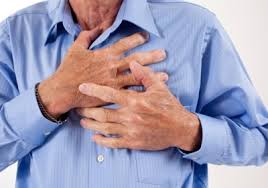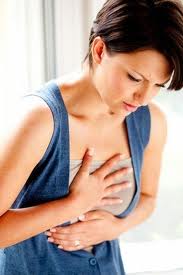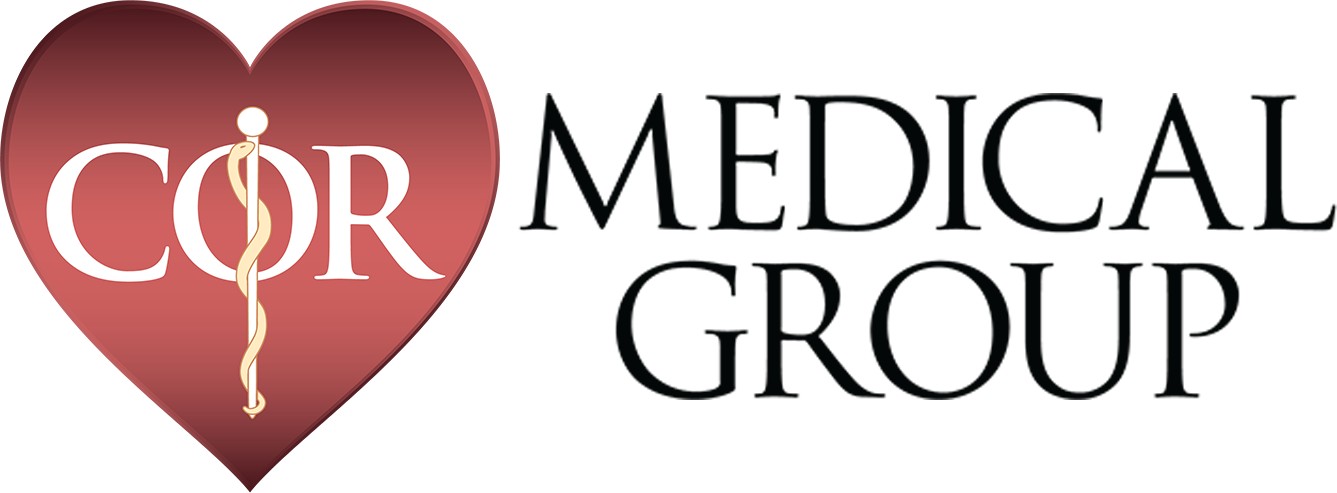Chest Pain
Chest pain may be a symptom of a number of serious conditions. As chest pain can be due to potentially life-threatening heart or lung conditions, it generally is considered a medical emergency.
While doctors may be determine that chest pain is non-cardiac in origin, this is often a diagnosis of exclusion made after ruling out more serious causes of the pain. Thus, patients having chest pain often are seen in emergency rooms or by cardiologists.
When chest pain is severe, the first thing you may think of is heart attack. Certainly chest pain is not something to ignore. But it has many possible causes. In fact, as much as a quarter of the U.S. population experiences chest pain that is not related to the heart. As there are many organs in the chest cavity, chest pain may also be caused by problems in your lungs, esophagus, stomach, gallbladder, muscles, ribs, spine or nerves, for example. Some of these conditions are serious and life threatening. Others are not. If you have unexplained chest pain, the only way to confirm its cause is to have a doctor evaluate you.
Chest pain that occurs predictably with exertion can be due to lack of adequate blood flow to the heart, usually caused by underlying plaque or atherosclerosis, termed coronary artery disease when blockages are present in the arteries that deliver blood to the heart. Chest pain caused by this is referred to as angina. When an artery to the heart becomes suddenly and completely blocked, it can cause a heart attack or myocardial infarction which often has severe chest pain as a prominent symptom.
Other Cardiovascular Causes of Chest Pain
There are heart related causes of chest pain that are not due to blockages in the arteries to the heart. The heart has a lining or sac around it called the pericardium and sometimes that can get inflamed leading to pericarditis which can cause chest pain, usually that worsens with a deep breath (“pleuritic” chest pain). Inflammation of the heart muscle is called myocarditis and can also mimic a heart attack as can “broken-heart” syndrome also known as stress cardiomyopathy or Takotsubo cardiomyopathy.
Arrhythmias, such as atrial fibrillation, can sometimes cause chest pain, usually if the heart rate is particularly fast. Mitral valve prolapse can sometimes cause chest pain. The aorta is the main and largest artery in the body and takes blood from the heart. When it is enlarged (aortic aneurysm) it can cause chest pain if it is enlarging, rupturing or tearing (aortic dissection) and this is a life-threatening condition which sometimes can be difficult to diagnose.
Non-cardiac Causes of Chest Pain
Lung:
If blood clots form in the veins of the legs (deep venus thrombosis or DVT), then break off and travel through the right side of the heart and into the lungs blocking arteries that go from the heart to the lungs, a pulmonary embolism has occurred. This often causes chest pain (usually worse with deep breaths or “pleuritic” with shortness of breath and sometimes a cough) and is a life-threatening condition. Other lung conditions such as pneumonia, collapsed lung (pneumothorax), fluid or blood around a lung (effusion), pleurisy (inflammation of the lining around the lung) and lung cancer can cause chest pain.
Gastrointestinal:
Acid that comes up from the stomach into the esophagus (which traverses through the chest) can cause pain or burning, thus the term “heartburn.” Sometimes, it can be very difficult to distinguish between chest pain caused by heartburn (which usually is mostly benign) versus a heart attack. This is why we always recommend being safe, rather than sorry, and having any chest pain checked out, even if you think it might just be due to heart burn. Hiatal hernias, stomach irritation (due to gastritis or ulcers) and gallbladder problems can also cause chest pain.
Chest wall or Musculoskeletal:
Inflammation of the cartilage that connects ribs to the breastbone, or costochondritis (Tietze’s syndrome) is a benign and harmless condition that can be mistaken for heart disease. Trauma to the chest wall muscles or ribs, bruises or muscle strains in the chest wall or breast (pectoral) area can be mistaken for heart disease. Spinal or disc problems in the neck or thoracic spine can lead to chest pain as can shingles (Herpes zoster) if it occurs along a nerve root supplying sensation to the chest area.
Psychological:
Anxiety or panic attacks can lead to chest pain and often patients thinking that they are having a heart attack although this should always be a diagnosis or exclusion.
Diagnosing Chest Pain
A careful history (including knowing the patient’s risk factors for heart disease) and physical exam often can lead a physician to narrow down the possibilities of what the likely cause of chest pain is. Medical tests help confirm or rule out more serious causes of chest pain including (but not limited to) an electrocardiogram (ECG or EKG); chest x-ray, CT scans (including sometimes CT coronary, aortic or pulmonary angiograms), nuclear medicine tests (including V/Q scans, cardiac PET scans and nuclear myocardial perfusion imaging), echocardiograms, blood tests (including cardiac enzymes); and cardiac stress tests. With more severe chest pain, especially in the acute setting or if the patient is otherwise unstable or very ill appearing, ruling in or out serious causes of chest pain such as heart attack, thoracic aortic dissection, pulmonary embolism, cardiac tamponade, tension pneumothorax or esophageal rupture is the most important first step.
Written by and/or reviewed by Mark K. Urman, MD and Jeffrey F. Caren, MD
Last updated: 04/24/2013
PLEASE NOTE: The information above is provided for general informational and educational purposes only and should not be used during any medical emergency. The information provided herein is not intended to be a substitute for medical advice, nor should it be used for the diagnosis or treatment of any medical condition. Accordingly, it should not be relied upon as a substitute for consultation with licensed and qualified health professionals who are familiar with your individual medical needs. Call 911 for all medical emergencies. Links to other sites are provided for information only – they do not constitute endorsements of those other sites. Please see Terms of Use for more information.




